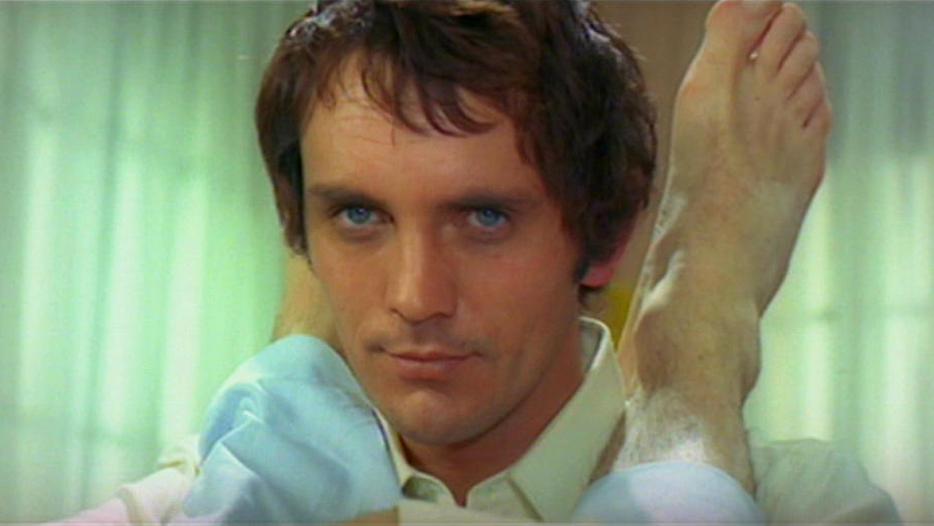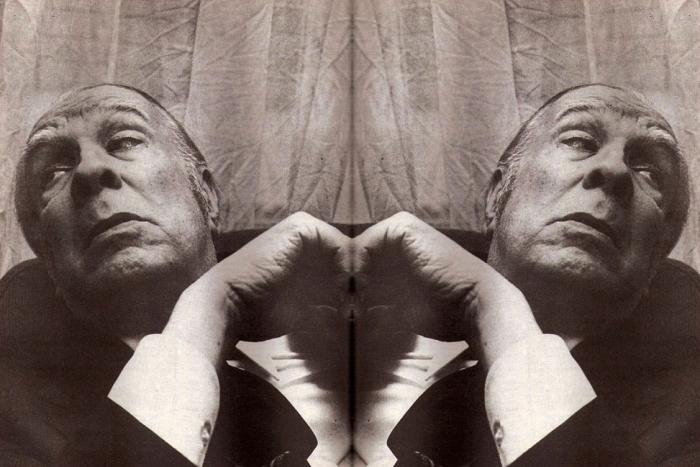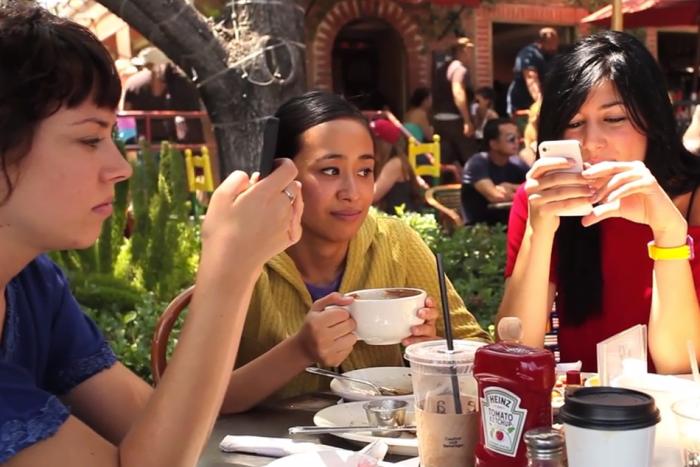We stood awkwardly on the lawn outside Loyola Chapel, watching a panicky woman in an elegant floor-length halter pound on the basement door. “It’s kind of weird to thump on a church door,” she said, thumping harder. She banged with a fierceness that clashed with her demure formalwear, and seemed a little embarrassed to have witnesses.
Montreal author Adam Leith Gollner had borrowed his dad’s Elantra to tour some of the sites linked to his latest project, The Book of Immortality, which explores the idea of eternal life. This church is where the idea began: it houses the auditorium where his former professor, avant-garde cinema critic and Jesuit priest Father Marc Gervais, screened movies for his students, likening film to communing with God.
Father Gervais passed away while the book was in progress, but their conversations figure centrally in Immortality, and Gollner credits his film classes with piquing his interest in the divine. In particular, he remembers a screening of Pier Paolo Pasolini’s Teorema, which fuses sexuality with divinity. “It’s a radical Marxist film about sexual encounters with a strange force,” Gollner explains. “[Father Gervais] said it was the story that could help people who had no connection to religion... He used to say, ‘It really says everything that can’t be said.’”
Gollner wanted to show me a glass case displaying some of the priest’s collection of movie posters and memorabilia. A wedding party was posing for portraits outside when we arrived; someone shut the chapel doors for a cleaner shot, inadvertently locking us all out. It was late afternoon, and this was the third closed door we’d hit retracing the steps of his spiritual research.
“I guess you can’t go back,” he said, as we turned toward the car.
*
Like The Fruit Hunters, Gollner’s last book, The Book of Immortality is ultimately a quest story, reprising Fountain of Youth myths as the author seeks their contemporaries. Gollner tackles his subject as a triptych. First, he delves into the holy and transcendental, speaking with spiritual figures linked to the meatier intellectual strains of Catholicism, Islam, Orthodox Judaism, and Sufism about what happens when we die.
Next, he hustles an invitation to David Copperfield’s archipelago of private islands, Musha Cay, where there are rumoured to be waters that bring dead leaves back to life. Gollner and his travel buddy commune with the celebrity magician and party with models, witnessing two bikini-clad women race goldfish through narrow racetrack trenches by blowing bubbles into the water. But he fails to find a real Fountain of Youth, much less prove its existence.
Finally, Gollner turns to science, to the peculiar subset of researchers whose work addresses why (and if) our bodies must die. Over the years this science has been an object of ridicule, having produced methods ranges from bathing in virgin’s blood to a “gland craze” that had people undergoing goat testicle grafts to slow the signs of aging. But Gollner meditates on how conversations about death converge with those about faith: his subjects believe in science, and their fervency is no less than religious.
“What do you believe in?” Gollner asked me, swinging the car toward our next place of worship.
“Not much. Gravity?”
“Because you know it.”
“Yeah.”
“That’s it. If you know it, then there’s no need to believe. God is like gravity. They know it. They know what is real and what happens to your soul in the beyond.”
*
Our afternoon tour began with us muddling through the festival-packed streets of Little Italy en route to the Assuna-Annabawiyal Sunni mosque in Park Ex. We went through separate men’s and ladies’ entrances to remove our shoes, then met up in the lobby four feet away.
It was 28 degrees out, and with both my shoulders and knees visible, I wasn’t dressed modestly enough to enter. Gollner went alone to return an overdue copy of Understanding Islam, then bounded out to recount the exchange:
“How long did you have this?” the librarian asked him.
“Three years.”
“Are you a Muslim?”
“No.”
“Ah, but you’re going to be.”
Gollner compares his research to a kind of spiritual tourism, “dipping into different faiths that people have spent their whole lives believing in, and then I come in for interviews and to read a bit about it.” He describes himself as a pagan, seeing the virtues of faith without subscribing to any particular one. Instead, he says, “belief is implicit in everything we do.”
*
In the book, Gollner returns again and again to the point that, while we believe, we can never know. “Our pursuit of objective reality is precisely that—a pursuit,” he writes. “Reason is a horizon, as Kant explained. We can’t ever get there. It’s something we chase but never attain. In attempting to take it all in, we experience the pleasure and agony of the sublime, the sense that things are bigger and more awe-inspiring than we can ever begin to imagine. The sublime is what happens when the dream of trying to comprehend reality, of getting tantalizingly closer to some ever-receding understanding, leaves us dazed on some dusty Florida side street of the mind.”
Over the course of the day, we traced a broad loop of the island and found ourselves standing outside an Orthodox Jewish art gallery, a converted Catholic chapel, a Sufi prayer space, a Hindu temple and the Islamic Studies library at McGill University. And each destination was closed to us when we arrived.
The closest we came to divinity was a bánh mì counter. Gollner complimented the woman serving us on the mangoes lying plump on a small shrine in the kitchen’s service window. She pointed out another shrine, under the counter, offering papayas to a figurine of Santa Claus. The first signified health, strength, and a long life, she explained, while the other offerings were for abundance.
We ate our Vietnamese subs hungrily, dragging crumbs with us into the car and onto our clothes. The two of us failed to enter any place of worship that day, yet faith was everywhere—in the conviction the newlyweds outside Loyola Chapel placed in their fresh vows, in the Sunni librarian’s confidence that Gollner would convert, and in the perfectly ripe mangoes sacrificed to good health. Similarly, The Book of Immortality sets out on a quest for meaning, but everywhere finds faith instead.






